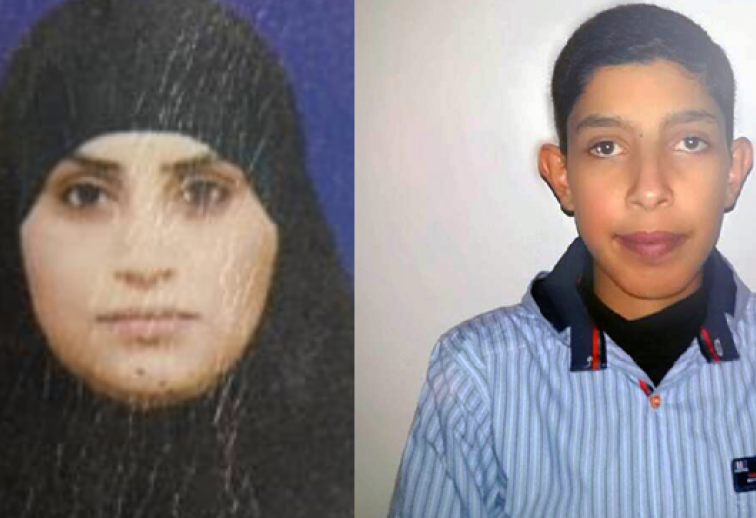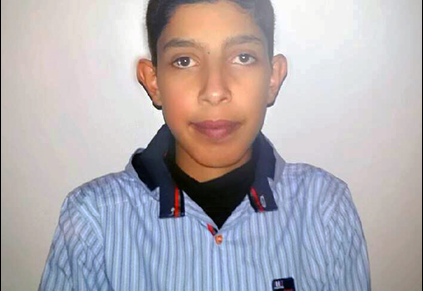Documenting deaths as Israel’s restrictions on Gaza patient travel continue

More than half (55%) of patients’ companions – family members accompanying patients to hospital – were also denied permits or received no response to their requests.
Gaza’s health system is struggling from the effects of a decade of blockade and closure, deemed collective punishment by the UN and the ICRC and contrary to international law, the impact of repeated military offensives, and frequent shortages of essential medications. Hospitals in Gaza have been further impacted recently by the ongoing fuel crisis which has caused them to reduce cleaning and sterilisation services and cancel some operations. Many medical specialties and treatments – such as radiotherapy for cancer and some cardiac surgery – are completely unavailable in Gaza, meaning that patients must be referred to hospitals elsewhere in the occupied Palestinian territory (East Jerusalem and elsewhere in the West Bank) or abroad to receive adequate care.
Behind each case of a denied or delayed permit is an individual story of a sick or injured person unable to access the care which they need. Sometimes these cases can have tragic outcomes, and the Al Mezan Centre for Human Rights has recorded six cases this year of patients who have died after either being refused a permit or not receiving a response in time for them to reach hospital.
Shirin Mohamed Al-Ali, 39. Repeatedly received no response to requests for travel permits to receive cancer treatment at the Augusta Victoria Hospital in East Jerusalem from late 2015 to early 2017. Died 9 January 2017 after the cancer metastasised to other parts of her body.

Eman Saleem Al-Kahlout, 48. Was urgently referred to Augusta Victoria Hospital in East Jerusalem on the morning of 11 February. She died later that evening of complications following a heart attack, after Israeli authorities stalled in assessing her application.
Aya Khalil Abu-Mutlaq, 5. Aya was born with a metabolic disorder which required treatment outside of Gaza. Israeli authorities failed to respond to two applications for permission to exit for appointments in February and March at the Al Mekassed Hospital in East Jerusalem. They re-scheduled a third time for an appointment on 27 April, but while the family were awaiting a permit Aya’s health deteriorated and she died on 17 April 2017.
Walid Mohamed Qa’oud, 59. Underwent a partial colectomy for colon cancer in Gaza in 2008, and exited Gaza for scans at the Augusta Victoria Hospital in East Jerusalem on 10 November 2015 after cancerous cells were detected in his lungs. On his way back to Gaza, Walid was reportedly detained by Israeli forces for six hours at the Erez crossing, where he was strip-searched, forced to stand in a stressful posture, and interrogated about his family. He was told he would not be allowed to exit again unless he brought his sons to meet Israeli intelligence agents. Later applications for exit for treatment at the Augusta Victoria Hospital were rejected or delayed, and in the meantime his health deteriorated. He attended one medical appointment in Egypt when able to exit via the Rafah crossing, but subsequent applications for exit via Erez were again not responded to. He was called to security interview on 21 March 2017 but was unable to attend due to his health. He died on 2 May, 2017.

“Alsa’aidni, a 36-year-old woman and lab technician from Al-Burij refugee camp, was diagnosed with thyroid cancer at the Gaza European hospital in April 2016. Following one chemotherapy session at Al-Rantesi Hospital, doctors in Gaza decided to refer her for treatment outside Gaza. Kholoud, a mother of two children, applied four times for an Israeli permit. Three times her request was still under study at the time of her hospital appointment, forcing her to miss appointments at Al Ahli Hospital in Hebron in December 2016 and in early January 2017 and at Augusta Victoria Hospital in late January 2017. Her fourth application for travel 22 February 2017 to Augusta Victoria Hospital was approved.
Kholoud's mother, who was accompanying her on that date, said that when they arrived to Erez, Kholoud was stopped for a security interview. She was asked by Israeli security officers to provide information on one of her relatives in return for allowing her to cross Erez. Kholoud replied that she did not have any information about the relative.
At that point, said Kholoud’s mother, “We were forced by the Israeli security to return to Gaza. Altogether the travel to Erez, the waiting at the border and the security interview amounted to seven hours and Kholoud’s medical condition deteriorated as a result. We returned back at Al-Rantesi Hospital in Gaza. She was suffering from dehydration and was treated with a drip solution and a dose of chemotherapy over a period of five days.”
Kholoud’s husband arranged to change her medical referral to Egypt and she managed the difficult trip through Rafah and Sinai to Egypt on 8 March 2017 after 3 months of delay. In a Cairo hospital, her condition continued to deteriorate and she died on 12 March 2017.”
Related content


